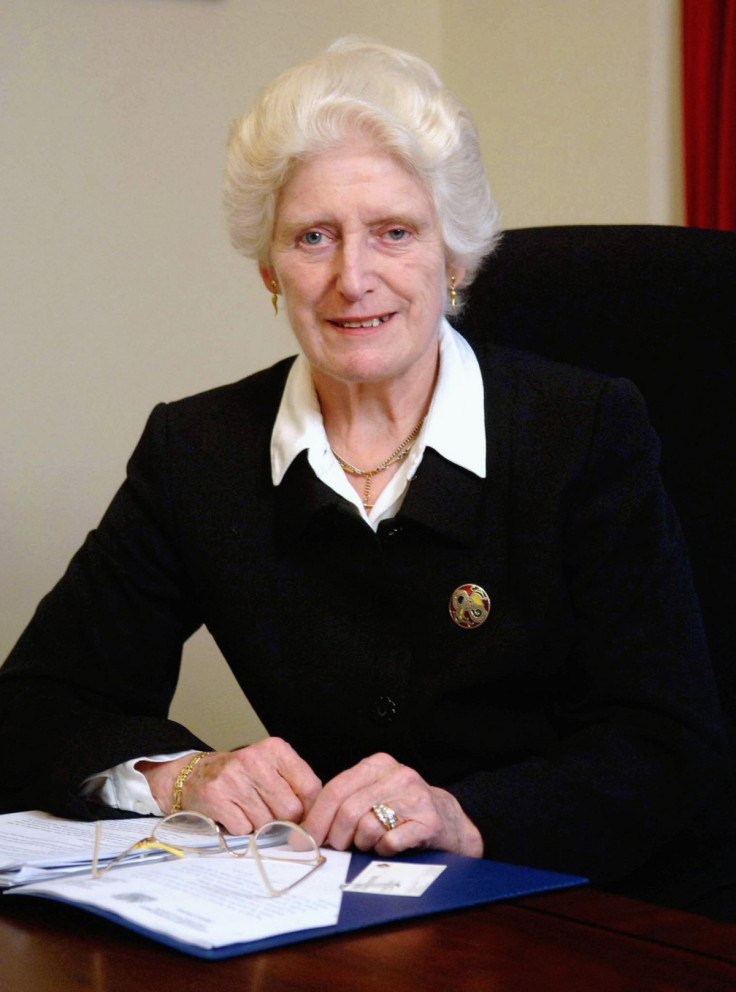Paedophile Inquiry Head Butler-Sloss Urged to Stand Down Because of Family Links

The largest inquiry ever launched into child sex abuse in the UK has been pitched into crisis even before it has got off the ground with demands for its head, Elizabeth Butler-Sloss, to stand down.
The campaigning MP who pressed for the over-arching inquiry, Labour's Simon Danczuk, has led claims her position is compromised by the fact her brother, Sir Michael Havers, was the attorney general at the time of the alleged cover-up of a Westminster paedophile ring.
Havers was criticised in the 1980s after he attempted to stop the late Tory MP Geoffrey Dickens using parliamentary privilege to name diplomat, Sir Peter Hayman, as a paedophile in the early 1980s.
Havers confirmed Hayman was a member of the Paedophile Information Exchange, he had been investigated by police who had raided his flat in 1978 and found paedophile pornography, but was never prosecuted.
There needs to be not a shred of doubt that this inquiry is not an establishment cover-up.
It is the now-famous "Dickens dossier" of an alleged child sex abuse ring involving prominent individuals and politicians that is at the heart of the latest inquiries.
And Danczuk and others believe the victims will have little confidence in an inquiry led by Butler-Sloss, no matter how distinguished and highly regarded she is.
Both Butler-Sloss and the home office have rejected the criticisms and insisted she will not quit, with a spokesman saying her work was beyond reproach and ministers stood behind her unreservedly.
But Danczuk said it "beggared belief" her family tie to Havers had not been considered, adding: "I think she should consider her position. I find it quite surprising that neither she nor the government realised her relationship with her brother was connected to Geoffrey Dickens."
The fact that she now sits in the House of Lords where some suspected of child sex abuse may also sit has also been raised as an issue.
The chair of the Commons home affairs committee, Keith Vaz, has expressed his "surprise" at the appointment, and Alison Millar, a lawyer who represents alleged victims, told the BBC: "There needs to be not a shred of doubt that this inquiry is not an establishment cover-up."
But Havers, she said, was "implicated in the failure to investigate" the 1980s allegations.
And it is that which goes to the core of the entire affair. The inquiry is looking at whether there was an establishment conspiracy, or unofficial understanding, to cover up allegations of child sex abuse.
Yet Havers and Butler-Sloss are both parts of the establishment with the former's role quite likely to be raised during the inquiry.
Butler-Sloss's integrity and professionalism has never been questioned and all concerned accept she did a good job when she headed the Cleveland child abuse inquiry in 1987.
But the issue is over public confidence and whether victims will also feel reassured that they will finally get some justice.
The question is, is there any individual with the experience, qualifications and seniority to carry out such a long, wide-ranging inquiry who would not be seen as being part of the establishment?
© Copyright IBTimes 2025. All rights reserved.





















